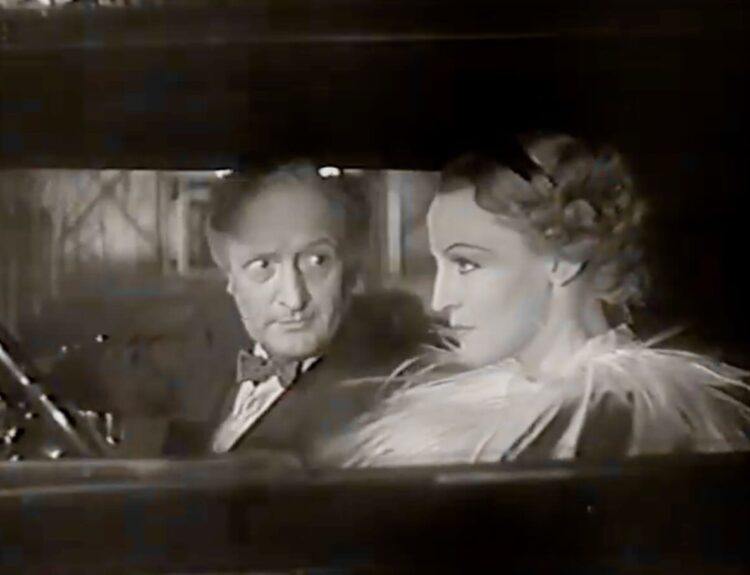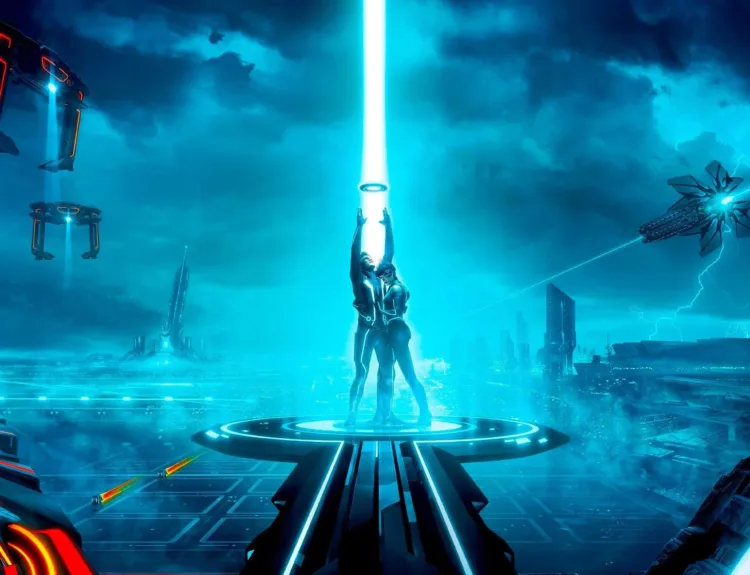Doctor Who has long been my favorite show, but it’s been a couple of years since I’ve actually watched anything but the newest episodes. Before that, I was making a respectable run at getting through the original series, most of which I haven’t seen for decades. For various reasons, it feels like time to get back into it.
Planet of the Daleks
Starring Jon Pertwee as the Third Doctor.
Companion: Katy Manning as Jo Grant.
Written by Terry Nation. Directed by David Maloney. Produced by Barry Letts. Script edited by Terrance Dicks.
Format: 6 episodes, each about 25 minutes long.
Originally Aired: April – May 1973 (episodes 15-20 of Season 10)
Planet of the Daleks picks up directly on the cliffhanger that Frontier in Space (the preceding story) ended on. It even starts with the same sort of recap that we usually see after most “Episode One’s”. And the story remembers, briefly, the plot of that previous story. But those connections are a bit cosmetic–the idea that Planet of the Daleks serves as the second half of what is essentially as 12 part story is a bit more a misnomer. Mostly, for better or worse, it functions like a normal standalone adventure.

Spoilers Ahead!
I’m under the impression that Planet of the Daleks is not usually rated very high in people’s assessment of the Third Doctor, and I can understand why. Especially following on the colorful concepts of Frontier in Space, it feels like a very drab affair. The space opera-sensibilities and intriguing political drama, the Master is not involved (not because of actor Roger Delgado’s death, as one might think–he died after this serial had aired), and the Draconians are nowhere to be seen. The plot isn’t padded, exactly, like Frontier‘s was, but it draaaaags terribly.
But having said that, I didn’t actually hate it. The story was serviceable, if uninventive, but there a handful of bright spots that I enjoyed–well-directed bits of action or inventive concepts, which mostly came along in later episodes. It’s a little implausible to watch our heroes successfully wrestle Daleks repeatedly hand-to-hand, but the sequence where the Doctor and his allies manage to push two of the creatures into a “pool of molten ice” is exciting to watch.

And the Doctor using warm updrafts to reverse-parachute his team out of danger is a neat idea. The Doctor gets to be quite physical and action-oriented, especially in the back-half of the serial, and he has some touching moments with Jo. I also thought the brief moment where the scientist-Daleks realise they can never leave the lab where they’ve been developing their pathogen to kind of intense.
But even so, the story suffers from an overall sense of blandness, which is a shame because Frontier in Space ended with the feeling that there was still more interesting story to tell. If the frozen Dalek army was on the Ogron planet instead of Spiridon, and it had been up to General Williams and the Draconian Prince to help the Doctor and Jo to deal with it, with some more Master-Dalek dynamic along for the ride, one can imagine the whole thing to have supported eight pretty cool episodes.
Instead we get a routine survival story full of flat characters.

Those characters are the Thals, who had previously been in the Daleks’ debut serial. They are a race characterised by their pacifism and their bronzey good looks. This story retains the looks, which is a decent nod to continuity but makes it difficult for me to always tell them apart. The pacifism is talked about, but aside from one meaningful moment at the end (more about that later) it’s just lip service. Basically, the Thals are pretty much exactly like people from earth.
We start off with three, but then this quickly grows to six, which is shame because there’s not quite enough personality traits to distribute amongst them. Codal is earnest and sciencey, Vaber is eager to take action, Taron is uncertain and in love with Rebec, and Rebec loves him back. Latep has pretty much no personality until he decides he’s fallen for Jo Grant, and Marat doesn’t seem to serve any purpose at all except to sacrifice himself pointlessly.
The story itself, like I said, plods along slowly. There’s a bunch of things happening, but often it feels more like you’re watching ideas being thrown haphazardly at the screen than you are seeing a story purposely advance.

The Daleks, for instance, are developing a deadly disease and learning the secret of invisibility and planning to defrost a giant army they’ve been keeping in storage. Spiridon, the planet where all this happening, has ice volcanoes and plants that shoot rapidly hardening sap and monsters in the night with glowy eyes and invisible humanoids. All the components are fine for what they are, but they pile on top of each other in a bit of a mess.
And not only a mess, but a drab, uninspiring mess. And more than that, often a cheap looking mess. There are some notable wide shots of “the mightiest army of Daleks there’s ever been” where the Daleks are played by little Dalek toys.

This wasn’t he only time this has been done, but it’s the only time I’ve seen it (the other example being a lost episode of The Evil of the Daleks), and the effect isn’t very unconvincing, and even more so more it gets used.
Another issue is the black-and-gold Dalek that shows up at the end, which looks noticeably clunky. But maybe my biggest problem are the purple fur coats the invisible Spiridonians wear (and which the Doctor uses as a disguise)–they all look the same and don’t resemble animal skins in the least (even alien animal skins). It’s a nit-pick, I guess, but for me the uniform, clearly manufactured, synthetic fur coats are where my suspension of disbelief is strained a bit too far.

But who knows, maybe the invisible Spiridons have an invisible manufacturing industry that we just can’t see.
Terry Nations’ scripts for Planet of the Daleks are sometimes criticised for hewing too closely to Nations’ original work on the show, in the story we usually call The Daleks. You can see it in things like the setting being a low-tech planet with one big high-tech city in the middle of it; the Doctor getting captured in the city, but then escaping and then breaking back in on purpose; someone hiding in a Dalek casing, and so on. I think it’s too much to say it’s just a rewrite of the earlier story–there are lots of differences, including the fact that Jon Pertwee’s Doctor interacts with the plot in a much more active way than William Hartnell’s did. But it still feels like Nation was building off of a familiar template, and that familiar elements were just pulled back out of storage when the mood struck.
There’s not a lot to say about the show’s guest cast with the exception of Bernard Horsfall as Taron, the leader of the Thal group (or at least, the surviving guy with the highest rank).

Horsfall is a dignified actor with a lot of presence, and a lot of Doctor Who credentials. He previously showed up The Mind Robber (as Gulliver) and The War Games (as one of the first Time Lords), and later was Chancellor Goth in The Deadly Assassin. He does a decent job with Taron, imbuing him with a level of gravitas missing from everyone else in the cast, except for Jon Pertwee of course.
Horsfall and Pertwee are also at the centre of the serial’s best moment, which comes right at the end. This is the bit where the Doctor entreats Taron to be mindful of how he and the others tell their story when they get home to the other peace-loving members of his race: “Don’t glamorise it. Don’t make war sound like an exciting and thrilling game. Tell them about the members of your mission that will not be returning, like Miro and Vaber and Marat. Tell them about the fear, otherwise your people might relish the idea of war. We don’t want that.” It’s a surprisingly meaningful exchange, which hint at themes that a better version of this story could have explored which would have made it a lot stronger.
Other thoughts:
• The serials’ opening, where the cliffhanger is being resolved, is frustrating in retrospect. The issue of the Doctor being shot just resolves when he simply heals itself after a bit of rest. Before passing out, the Doctor remembers to tell Jo to record everything into a tape recorder, but doesn’t remember to tell her to just wait because he’ll be fine in a few minutes.

And the act of recording things into the recorder ends up serving no purpose at all except to give Katy Manning a reason to say things in the first episode.
• It’s a fun touch that at the show’s final minutes, the Doctor and Jo have to run away from the surviving Daleks again. But it brings up how the story would have been strengthened by a tighter connection to the world-building seen in Frontier in Space. At the end, there are still Daleks who are mobile, who are sending a signal for help to get their giant army out of the ice. You’d think a comment about alerting the Earth and Draconian leaders to this threat would not have come amiss.
• The very end of the serial has Jo expressing how much she is missing earth, which nicely sets up her departure from the series in the next story.



